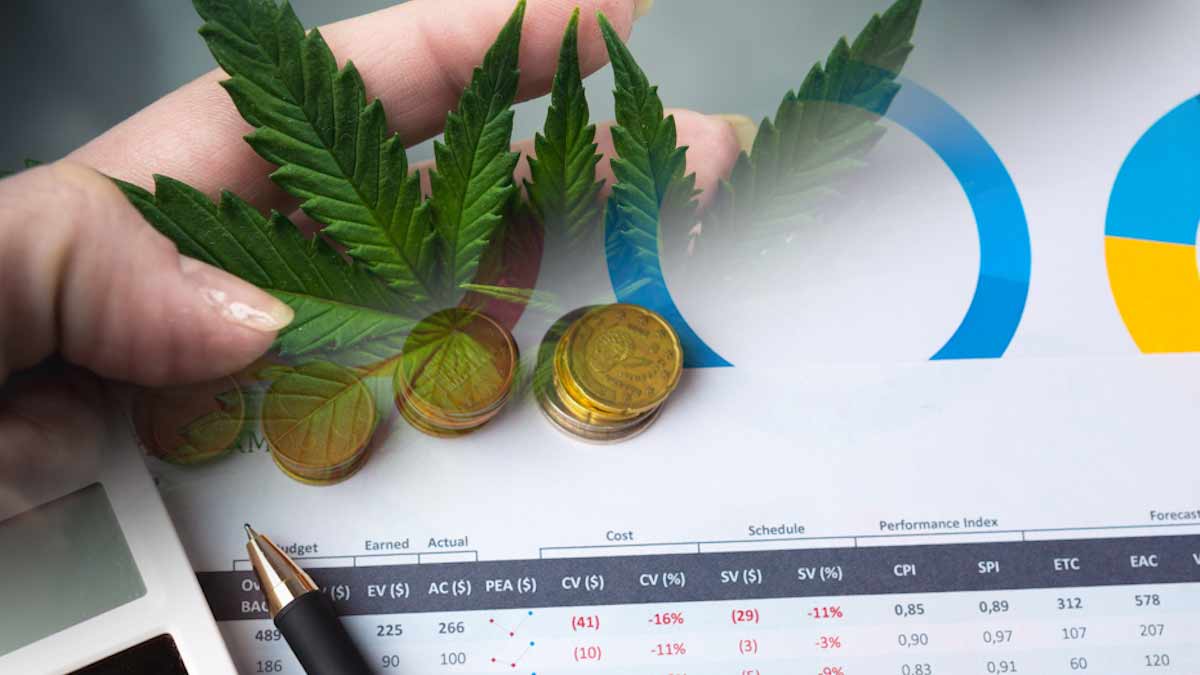Hemp, Inc. Reports: South Dakota on Track to Legalize Industrial Hemp
Hemp, Inc. (OTC PINK: HEMP) executives announce to shareholders today that South Dakota may also join the ranks of states to legalize industrial hemp. According to the South Dakota State Legislature, House Bill (HB) 1204, sponsored and introduced by South Dakota’s Committee on State Affairs, would allow the production and sale of industrial hemp for commercial purposes, thereby setting forth the foundation to end federal prohibition in practice. The Committee on State Affairs introduced House Bill 1204 (HB1204) this month which passed the house with a 51-16 vote before moving to the Senate house, for the first read, yesterday.
Bruce Perlowin, CEO of Hemp, Inc. (OTC PINK: HEMP), said, “With the succession of states legalizing or on track for legalizing industrial hemp, the industrial hemp industry in America is rapidly reaching a tipping point. Hemp, Inc. forecasted this tipping point years ago and started developing the solid infrastructure for what we have in place today. That infrastructure includes our commercial multi-purchase industrial hemp processing facility in North Carolina, industrial hemp farming in North Carolina, Nevada, Arizona (and more states soon), marketing systems to market in the U.S. and globally, and an educational component (‘The Hemp University’ in North Carolina). This has put us at the forefront of this multibillion dollar emerging industry as a leader while we continue to collectively build a new clean green agricultural and industrial American Revolution.”
Under the proposed law, any person meeting the statutory requirements could plant, grow, harvest, possess, process, sell, and buy industrial hemp with a license issued by the South Dakota Department of Agriculture. Current federal law regarding industrial hemp authorizes hemp farming by research institutions only for research purposes while farming for commercial purposes by individuals and businesses remains prohibited. HB1204, however, exercises its state’s rights and simply ignores federal prohibition and authorizes commercial farming and production.
While prospective hemp growers would still have to take federal law into consideration, by eliminating the state requirement for federal permission, the South Dakota law would eliminate a major obstacle to widespread commercial hemp farming within the borders of the state. According to an article on the Tenth Amendment Center Blog, “Farmers in SE Colorado started harvesting the plant in 2013, and farmers in Vermont began harvesting in 2014, effectively nullifying federal restrictions on such agricultural activities. On Feb. 2, 2105, the Oregon hemp industry officially opened for business and one week later, the first license went to a small non-profit group.” With that being said, “as more people engage in hemp production and the market grows within these states, more people will become emboldened creating an exponential wave, ultimately nullifying the federal ban in effect.”
So what is making industrial hemp so important to Americans and so important to states that they are willing to simply ignore a federal ban now? As the uninformed become informed on the difference between hemp and marijuana and the fog of ignorance dissipates, a miracle crop stands in clear sight as ways to help the economy and expand sources of revenue are sought.
“Industrial hemp has absolutely no recreational applications. It only has medical and industrial applications. Sorry, you can’t get high on hemp. If there is any federal pushback against recreational marijuana, this would not affect industrial hemp or Hemp, Inc.,” said Perlowin.
Industrial hemp can be used for a wide range of products, including fibers, construction, food, paper, insulation materials, textiles, cosmetic products, and beverages, to name a few and is estimated to be used in more than twenty-five thousand products spanning multiple markets (agriculture, textiles, recycling, automotive, electronics, furniture, food/nutrition/beverages, paper, construction materials, personal care and others).
“It’s no doubt that industrial hemp industry is here to stay and it’s only going to grow very rapidly now that it has reached a tipping point. Trying to slow that evolutionary progress down is like trying to sweep back an incoming tide with a broom. State legislatures are taking action to promote industrial hemp as an agricultural commodity and now the time has come for South Dakota to do the same,” said Perlowin.
As more states legalize industrial hemp, more opportunities become available for Hemp, Inc. to process the raw hemp. Hemp, Inc.’s commercial, large scale, 70,000 square foot industrial hemp processing facility, on 9 acres of land in Spring Hope, North Carolina is the only one of this magnitude in the entire western hemisphere. The milling portion of Hemp, Inc.’s industrial hemp processing facility has just been completed which strategically expands the company’s worldwide industrial base for producing hemp-based products. Hemp, Inc.’s industrial hemp processing facility is bound to become the mecca of this new clean green agricultural and industrial American revolution.
To see the most recent video of the mill being completed, click here. To see the video of America’s largest hemp processing facility (70,000 square feet under roof, on 9 acres) and 60-foot silo installation, click here.
Aligned with Hemp, Inc.’s Triple Bottom Line approach, Perlowin is exploring the possibilities of developing Hemp Growing Veteran Village Kins Communities in South Dakota (similar to the 500-acre demonstration community being built in Arizona where Perlowin plans on growing 300 acres of hemp this year) that would consist of smaller lots for Kins Domains (eco-villages). “The eco-villages would also include organic gardens, natural beehives, a pond, a living fence and other elements,” said Perlowin.
From rehabilitation to job creation, Perlowin says this model presents a holistic solution to those individuals that all Americans owe a great debt of gratitude towards… the American veterans. Perlowin expects this model to produce very lucrative revenue for Hemp, Inc., the veterans themselves and the local communities these Kins Communities are built near. “The infrastructure for ‘The Hemp Growing, CBD-Producing, Veteran-Village Kins Community,’ which takes time to build, is already in place in Arizona which I’ve been building for the last 4 years and can be duplicated in South Dakota,” concluded Perlowin.
THE HEMP UNIVERSITY
The Hemp University has been established to be the blueprint for farming, navigating and thriving in the industrial hemp revolution. With the goal to educate its attendees on key topics such as transitioning from traditional farming to organic farming, different hemp cultivar strains, how and where to get certified seeds, planting and harvesting industrial hemp, an in depth history of hemp and its many uses, agronomy, permaculture, ecological advantages and many more courses with an ever expanding curriculum. Hemp, Inc. (OTC PINK: HEMP) has secured an outstanding lineup of experts from at least a dozen states all over the country, including New York, Virginia, North Carolina, South Carolina, Nevada, Colorado, Oregon and Kentucky and more for the 2017 season.
Classes will also cover such topics as organic certification, potential licensing fees, what’s happening with industrial hemp in different states around America, high CBD strains and different CBD extraction technologies (which will also be installed and showcased at Hemp, Inc.’s processing facility) and marketability of the crop. The seminars are expected to start March 18, 2017.
Hemp retail products from all around the country will be showcased at The Hemp University. Attendees will also be able to connect with potential industrial hemp distributors and product manufacturers. Our new “Hemp Hub” will be a one stop shop for every aspect of industrial hemp from seed and soil to sale. Providing as many resources as possible to our American farmers and land owners to successfully grow hemp and have sales channels for the potential 25,000 products our hemp industry can produce.
For those interested in attending, teaching, touring the hemp field and hemp processing facility or showcasing your company’s hemp products, at The Hemp University, visit www.thehempuniversity.com. With less than 30 days and 50 slots available for land owners and farmers, it’s advisable to purchase your ticket(s) today at https://www.eventbrite.com/e/farming-hemp-for-profit-tickets-32189961040.
SUBSCRIBE TO HEMP, INC.’S VIDEO UPDATES “Hemp, Inc. Presents” is capturing the historic, monumental re-creation of the hemp decorticator today as America begins to evolve into a cleaner, green, eco-friendly sustainable environment. What many see as the next American Industrial Revolution is actually the Industrial Hemp Revolution. Watch as Hemp, Inc., the #1 leader in the industrial hemp industry, engages its shareholders and the public through each step in bringing back the hemp decorticator as described in the “Freedom Leaf Magazine” article “The Return of the Hemp Decorticator” by Steve Bloom.
Freedom Leaf Magazine, one of the preeminent news resources for the cannabis, medical marijuana, and industrial hemp industry in America, is published by Freedom Leaf, Inc., a fully reporting, audited, publicly traded company on OTC Markets. Stay in the loop with Freedom Leaf Magazine as it continues to deliver the good news in marijuana reform with some of the most compelling art, entertainment, and lifestyle-driven industry news in the cannabis/hemp sector. On the go? Download the Freedom Leaf mobile app to stay connected as they transform the delivery of cannabis news and information across the digital landscape. Get the mobile app on Apple iOS or Google Play.
“Hemp, Inc. Presents” is accessible 24 hours a day, 7 days a week, by visiting www.hempinc.com. To subscribe to the “Hemp, Inc. Presents” YouTube channel, be sure to click the subscribe button.
ABOUT INDUSTRIAL HEMP
Hemp is a durable natural fiber that is grown as a renewable source for raw materials that can be incorporated into thousands of products. It’s one of the oldest domesticated crops known to man. Hemp is used as a nutritional food product for humans and pets, building materials, paper, textiles, cordage, organic body care and other nutraceuticals, just to name a few. It has thousands of other known uses. A hemp crop requires half the water alfalfa uses and can be grown without the heavy use of pesticides. Farmers worldwide grow hemp commercially for fiber, seed, and oil for use in a variety of industrial and consumer products. The United States is the only developed nation that fails to cultivate industrial hemp as an economic crop on a large scale, according to the Congressional Resource Service. However, with rapidly changing laws and more states gravitating towards industrial hemp and passing an industrial hemp bill, that could change. Currently, the majority of hemp sold in the United States is imported from China and Canada, the world’s largest exporters of the industrial hemp crop.
To see the video showcasing the dramatic footage of our hemp and kenaf grows, click here.
To see 1-minute daily video updates (from Hemp, Inc. CEO Bruce Perlowin) on the final phases of completion of Hemp, Inc.’s 70,000 square foot industrial hemp processing facility and milling operation and other developments, click here. (Remember to scroll down to see the other videos of this historical event of building an American industrial hemp processing facility and factory from the ground up.)
HOW HEMP CAN CHANGE THE WORLD
Industrial, medicinal and commercial properties of hemp have been known to mankind for decades. Cultivating hemp does not require any particular climate or soil, and is thus found in all parts of the world and has been found to be a better alternative than other raw materials. Hemp products can be recycled, reused and are 100% biodegradable. The growth speed of the plant is fast enough to meet the increasing industrial and commercial demand for these products. Switching to hemp products will help save the environment, leaving a cleaner and greener planet for the next generation.
“The hemp crop grows dense and vigorously. Sunlight cannot penetrate the plants to reach the ground, and this means the crop is normally free of weeds. Its deep roots use ground water and reduce its salinity. Also, erosion of topsoil is limited, thereby reducing water pollution. The roots give nitrogen and other nutrients to the soil. After the harvest, this soil makes excellent compost amendments for other plants, and hemp cultivation can follow the rotation of agriculture with wheat or soybean. In fact, the same soil can be used to grow hemp for many years, without losing its high quality. The hemp plant absorbs toxic metals emitted by nuclear plants into the soil, such as copper, cadmium, lead and mercury.” (Source: https://www.hempbenefits.org)
To see 1-minute daily video updates (from Hemp, Inc. CEO Bruce Perlowin) on the final phases of completion of Hemp, Inc.’s 70,000 square foot industrial hemp processing facility and milling operation and other developments, click here. (Remember to scroll down to see the other videos of this historical event of building an American industrial hemp processing facility and factory from the ground up.)
ABOUT NORTH CAROLINA INDUSTRIAL HEMP ASSOCIATION
“Through education we believe that the law of our state can be changed to allow the growing, processing, and sale of Hemp and Hemp products within North Carolina in a responsible manner. Through education, dedication and fundraising, North Carolina can be accelerated to the forefront of global growth in Industrial and Medicinal Hemp. North Carolina can and should lead the country in cultivation, processing and support the consumption of hemp’s many beneficial products. Hemp was, for almost 200 years, a legal and fundamental crop in North Carolina and should be again. Farmers should be able to grow and consumers buy Hemp products grown and processed in our state.”
Visit www.ncindhemp.org for more information. To join the North Carolina Industrial Hemp Association, click here.
ABOUT THE NATIONAL HEMP ASSOCIATION
NHA represents hemp farmers, processors, manufacturers, start-up businesses, entrepreneurial endeavors, and retailers and strives to build a viable industrial hemp economy by providing education about the benefits of hemp and providing expert consultation to producers and processors entering the hemp industry. NHA has developed close relationships with local and state government agencies to establish regulations that benefit the hemp industry across the nation. We provide a wealth of expertise in fields ranging from mining and agriculture to hemp materials processing and the latest developments pertaining to laws and regulations. For more information on the National Hemp Association, visit www.NationalHempAssociation.org.
HEMP, INC.’S TRIPLE BOTTOM LINE
Hemp, Inc. (OTC PINK: HEMP) seeks to benefit many constituencies from a “Cultural Creative” perspective, thereby not exploiting or endangering any group. CEO of Hemp, Inc., Bruce Perlowin, is positioning the company as a leader in the industrial hemp industry, with a social and environmental mission at its core. Thus, the publicly traded company believes in “up streaming” a portion of its profits back to its originator, in which some cases will one day be the American small farmer, American veterans and others — cultivating natural, sustainable products as an interwoven piece of nature. By Hemp, Inc. focusing on comprehensive investment results — that is, with respect to performance along the interrelated dimensions of people, planet, and profits — the triple bottom line approach can be an important tool to support its sustainability goal.
SOCIAL NETWORKS:
https://www.twitter.com/hempinc (Twitter)
https://www.facebook.com/hempinc (Facebook)
https://investorshangout.com/Hemp-Inc-HEMP-87248/ (Investors Hangout)
To see the video showcasing the dramatic footage of our hemp and Kenaf grows, click here.
To see 1-minute daily video updates (from Hemp, Inc. CEO Bruce Perlowin) on the final phases of completion of Hemp, Inc.’s 70,000 square foot industrial hemp processing facility and milling operation and other developments, click here. (Remember to scroll down to see the other videos of this historical event of building an American industrial hemp processing facility and factory from the ground up.)
SAFE HARBOR ACT
Forward-Looking Statements are included within the meaning of Section 27A of the Securities Act of 1933, and Section 21E of the Securities Exchange Act of 1934, as amended. All statements regarding our expected future financial position, results of operations, cash flows, financing plans, business strategy, products and services, competitive positions, growth opportunities, plans and objectives of management for future operations, including words such as “anticipate,” “if,” “believe,” “plan,” “estimate,” “expect,” “intend,” “may,” “could,” “should,” “will,” and other similar expressions are forward-looking statements and involve risks, uncertainties and contingencies, many of which are beyond our control, which may cause actual results, performance, or achievements to differ materially from anticipated results, performance, or achievements. We are under no obligation to (and expressly disclaim any such obligation to) update or alter our forward-looking statements, whether as a result of new information, future events or otherwise.
For Investor Relations, please send correspondence to:
ir@hempinc.com
Contact Information
Hemp, Inc.
(855) HEMP-OUT
info@hempinc.com
MAPH owns 6 million common restricted shares of (HEMP). We may buy or sell additional shares of (HEMP) in the open market at any time, including before, during or after the Website and Information, provide public dissemination of favorable Information. PLEASE READ OUR FULL PRIVACY POLICY & TERMS OF USE & DISCLAIMER <— embed this link into the “PLEASE READ OUR …
MAPH Enterprises, LLC | (305) 414-0128 | 1501 Venera Ave, Coral Gables, FL 33146 | new@marijuanastocks.com








